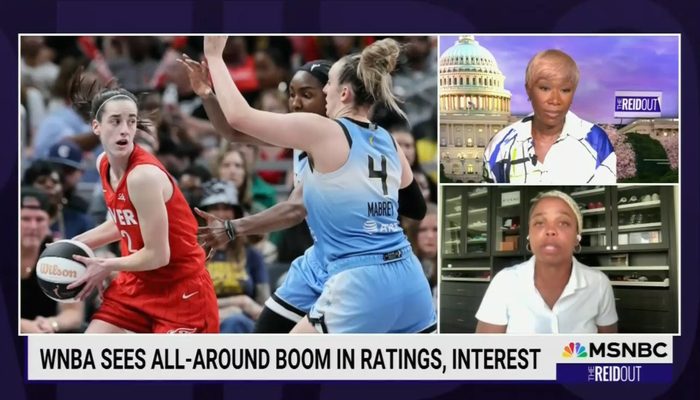MSNBC’s Joy Reid recently tackled a topic outside the usual talking points: women’s basketball favorites. Unlike Reid and journalist Jemele Hill from The Atlantic, most supporters don’t choose favorites because of race or sexuality, they simply appreciate the prowess on the court. Yet, Reid and Hill see a racial discussion.
The trigger was the fallout over Chennedy Carter’s unsportsmanlike foul on Caitlin Clark, discussed heatedly the previous week. Charles Barkley, an African American sports pundit, was one to criticize the act, setting a different note to the narrative. Despite the controversy, Carter immaturely endorsed tweets applauding her act.
Given the floor, Hill claimed the animosity demonstrated was overblown. She disliked the projection of pettiness and jealousy onto the disagreement, stating that it reinforced negative stereotypes about women, most acutely African American women. To her, this undermined the league, predominantly led by black women.
Reid added the claim that though most female basketball stars are African American, the “popular” ones are often white. This skewed representation favors white players in awards and publicity features. She also suggested that WNBA’s struggles with revenue — a separate booster benefiting the likes of Brittney Griner — could’ve been solved with sponsored charter flights.
Shifting to Clark’s popularity, Reid implied that Clark’s white heterosexual identity is an obvious marketing opportunity. Explaining that it could attract white dads to buy season tickets, she also categorized it in a league that predominantly consists of black women and a significant portion of LGBTQ+ members.
Hill found little controversy in marketing based on “ability” and “talent,” acknowledging that Clark possessed these qualities. She added that Clark’s ethnicity and sexuality potentially elevated her marketing appeal in a league struggling for recognition and coverage since its inception. Hill highlighted parallels with NBA’s past struggles, needing to adapt to appeal to a broader audience.
However, anyone familiar with sports knows the popularity of players depends on their talent, passion, and charisma, beyond skin color, nationality, or sexual orientation. Evidenced by the international popularity of African American players in basketball, the appeal of Japanese stars in Baseball, or the adoration for an African American gymnast in the Olympics.
To conclude, accusations like the ones from Reid and Hill that American audiences are racially biased in their choice of sports stars are heavily mistaken. Sports fans appreciate the prowess and talent players bring to their game, irrespective of their race or sexuality. Nonetheless, these unfounded smears against fellow Americans continue, despite evidence to the contrary.



